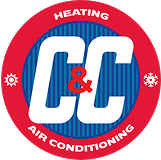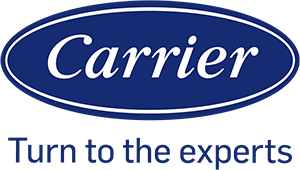Recent technological advancements are helping to make HVAC units “smarter” and more efficient. These innovations are resulting in improved ways to cool and heat your home. Making your heating and cooling system smarter, faster, and more efficient will lower your energy bills while keeping your household comfortable all year.
The following are some of the most recent and innovative HVAC advancements that are changing how we heat and cool our houses.
Smart Home Technologies
These days, everything seems to be getting “smarter.” Almost every form of technology, including home appliances and systems, are being equipped with smart technology. Phone apps and connected systems allow you to control entertainment, security systems, lighting, heating and cooling equipment, and more with just the push of a button. Smart technologies continue to advance and become more fully integrated into residences. This lets you control the comfort level of your home down to the smallest detail. The trend toward smarter homes is changing how HVAC designers and engineers approach new products and solutions that can increase your comfort level and improve your life.
Motion-Activated Air Conditioning
This technology has only become readily available to homeowners in recent years. It helps to make air conditioning a lot more efficient. To enjoy the benefits, you will need to install motion sensors in your house. When the sensors detect movement, they will send a signal to your air conditioner to cool down your living areas as needed. If there is no motion detected, your air conditioning system will also make the necessary adjustments. This technology offers several benefits, including a reduced amount of strain on your HVAC equipment, automated AC operations, and reduced energy costs.
Indoor Air Quality Sensors
If you would like to ensure a healthy environment, then it is important to monitor your home’s indoor air quality. Air quality sensors provide data on various kinds of pollutants, including allergens, viruses, pollen, and bacteria. You can use this information for various purposes, including knowing when it is time to change your HVAC air filters. Residences that have bad indoor air quality are not healthy for those with respiratory problems, especially children. Installing air quality sensors can be a very useful upgrade if you want to keep issues like allergies and asthma under control.
Geothermal Heat Pumps
This type of heat pump is being increasingly used in HVAC systems. Although this technology has been available for several decades, it is becoming especially popular these days by those who want to make their homes more sustainable.
These systems work by drawing heat from the reserves deep underground and transporting it to your house. The thermal energy that is drawn from beneath the earth’s surface can actually be used to heat and cool your residence. Geothermal systems either draw heat from the reserve or release heat to it. This source can be used to efficiently heat your home without depleting the earth’s thermal energy reserve. It offers a consistent and environmentally friendly energy source.
Collecting heat from underground is a fairly involved process, but some systems do it efficiently. Geothermal systems utilize a pump and system of looped pipes underground to bring water from the reserves underground into your house. This pump can heat your home in the winter. During the summer, it can take hot air from your house and transfer it to the ground through the use of a heat exchanger. This technology is normally used alongside a conventional electric HVAC system to help reduce your energy bills.
Whole-Home Dehumidifiers
Your home’s indoor air quality can suffer from high humidity conditions. Therefore, it is essential to find a good solution to deal with humidity to help maintain and improve your house’s comfort levels. Standalone dehumidifiers can be used to help control the air quality in small spaces. However, you might want to supplement this solution if you have a large property.
A whole-home dehumidifier offers an integrated solution to high humidity. This type of system is designed to regulate the levels of humidity in your entire house. It can be connected to your HVAC system to achieve a consistent and comfortable indoor air quality. You can then control the humidity level of your residence through either using a smartphone app or your thermostat.
Wi-Fi–Enabled Fans
An effective way to control air circulation is to use built-in fans. One smart solution is Wi-Fi-enabled fans. You can use your smartphone to control air circulation and improve your home’s comfort level.
Fans can help to effectively circulate air in both the summer and winter. During the summer, your Wi-Fi-enabled fans can circulate cool air. The movement of cool air can help to increase your air conditioner’s efficiency. During the winter, your Wi-Fi-enabled fans can be used to circulate the heat throughout the various living spaces of your residence.
One HVAC System With Multiple Heat Sources
Most heating systems utilize a single source of warmth. Furnaces are usually powered by either electric or natural gas, which both have their own pros and cons. That is why limiting your heating system to a single source might seem shortsighted when you consider that several viable options are available.
Current HVAC system advancements allow for several sources of heat to be used with one system. There are heating systems available that use a combination of different heating sources. The furnace works with the heat pump to produce the most efficient heating for a particular situation.
HVAC Zoning
HVAC zoning works by breaking up your home into different sections. Cold or warm air is sent into those sections as necessary. So, instead of cooling your whole house, the air conditioning could be turned down on your first floor and kept higher upstairs. You could also reduce the airflow into a room that is not being used. Using airflow strategically through the use of zones can help to improve the energy efficiency of your property.
DeVAP
Within today’s cooling and heating industry, sustainable HVAC is one of the hottest trends. DeVAP, or desiccant enhanced evaporate, utilizes evaporative cooling to condition the air. The system runs water through a honeycomb media. From there, a fan blows through the honeycomb, which evaporates the water. The desiccant substance absorbs humidity out of the cooled air. Dry air is created, and this provides a cooling effect that is similar to a traditional air conditioning unit. DeVAP systems are becoming increasingly popular due to their environmentally friendly refrigerants and lower energy consumption.
Professional Services You Can Rely On
Homeowners in Macomb County and the Detroit metro area can rely on the professional HVAC installation and repair services offered by C & C Heating and Air Conditioning. We can handle everything from duct cleaning and furnace installations to indoor air quality services and more. Our crew has been proudly serving residents of southeastern Michigan for more than six decades. That means you can trust our experience. Contact C & C Heating and Air Conditioning in Roseville, MI, today for more information on modern HVAC advancements.





